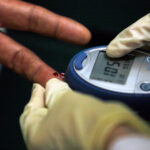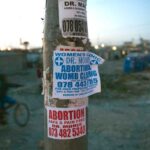Government has raised concerns that the health system may buckle under the pressure of both HIV and non-communicable diseases – a dual epidemic.
National health director general Precious Matsoso has warned that the current rate of non-communicable diseases such as diabetes, heart-related conditions and cancers pose a threat to the government’s planned National Health Insurance system. “I hope South Africa’s fight against these conditions will be fought with the same vigour and yield the same results as the fight against HIV has. If such diseases are not curbed, it could see the South African public health system put under a lot of strain in 10 years’ time,” Matsoso said.
“Our health services will simply be overrun with people suffering from non-communicable diseases. Our resources will not be able to handle the combination of both chronic care and HIV,” said Matsoso during the opening of the Academy of Science of South Africa conference on the changing patterns of non-communicable diseases in Johannesburg this week.
Head of the Burden of Disease Research Unit at the Medical Research Council (MRC), Debbie Bradshaw, said that the impact of non-communicable diseases is aggravated by the country’s high HIV infection rates.
“South Africa is in the throes of colliding epidemics. Even before the HIV epidemic we had non-communicable diseases. HIV of course worsened the situation. And now, chronic diseases such as diabetes, hypertensive heart disease, renal disease and prostate and breast cancer are on the rise,” said Bradshaw.
According to the World Health Organisation, heart disease, cancers, diabetes and chronic lung diseases account for 36-million deaths worldwide. A Statistics South Africa report found that non-communicable diseases are currently among the leading causes of death in the country, accounting for 40% of all deaths.
“[R]ace against time”
“We are in a race against time because those emerging chronic diseases are all related to obesity, hypertension, diabetes, cholesterol, smoking and risky alcohol use,” said Bradshaw.
The South African National Health and Nutrition Examination Survey released last week found that 40% of women are obese – 25% of women and 19.6% of men are overweight. According to the Heart and Stroke Foundation, 6.3-million people in South Africa have high blood pressure. The organisation estimates that “130 heart attacks and 240 strokes occur daily in South Africa”. The National Kidney Foundation said 60% of kidney failure in South Africa is due to high blood pressure and 20% to 25% due to type 2 diabetes. The International Diabetes Federation estimates that 1.9-million South Africans have the condition.
Lifestyle choices such as alcohol abuse are risk factors for the development of a non-communicable disease. The World Health Organisation said that excessive alcohol consumption can lead to conditions such as epilepsy, liver cirrhosis, cancer, diabetes and heart disease.
“It’s not just the volume of the alcohol consumed that is of concern, but the patterns of drinking are also worrying. South Africans often take part in heavy episodic drinking or binge drinking,” said Bronwyn Myers from the Medical Research Council.
According to Matsoso, the health department is addressing the social norms that contribute to the risk of developing non-communicable diseases through legislation.
“We are on the verge of releasing a piece of legislation regulating alcohol advertising. As a country we have passed regulations about tobacco control and over the years we have seen results. Most recently we have passed regulations about the control of salt content.”
According to the Heart and Stroke Foundation a high-salt diet is the leading cause of high blood pressure. The foundation said that consume more than three teaspoons of salt a day, more than the one teaspoon recommended by the World Health Organisation.
Ina Skosana was a health reporter at Bhekisisa.





